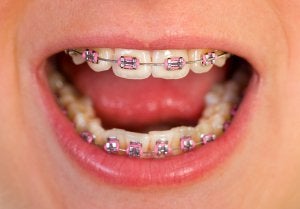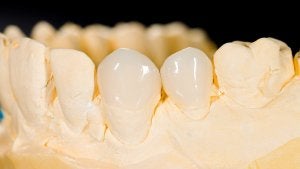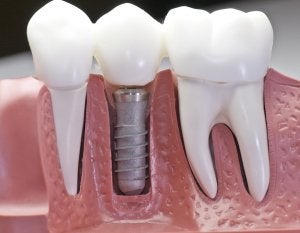-
Tips for Caring for Your Teeth When You Have Braces
 If you have braces, it is important to adjust your eating and oral hygiene habits in order to continue caring for your teeth. Though it may take some extra time to clean in and around the hardware of your braces , proper care is essential for achieving a good outcome when your braces are removed. If you are considering orthodontics in Schaumburg, here are some great tips for caring for your teeth after you are fitted with braces:
If you have braces, it is important to adjust your eating and oral hygiene habits in order to continue caring for your teeth. Though it may take some extra time to clean in and around the hardware of your braces , proper care is essential for achieving a good outcome when your braces are removed. If you are considering orthodontics in Schaumburg, here are some great tips for caring for your teeth after you are fitted with braces: Maintain Good Oral Hygiene
Food particles can easily become trapped between the brackets of your braces. This means that you must take extra care to brush and floss your teeth regularly. If you don’t practice proper oral hygiene with braces, a build up of plaque and food particles can begin to cause dental problems such as cavities and gum disease. For patients with braces, orthodontists recommend brushing after each meal. Your orthodontist may also recommend other tools to help clean your teeth, including a proxabrush, which is a special toothbrush designed to fit between your braces. Waterflossers and fluoride mouthwash are also highly recommended.
Avoid Certain Foods
There are certain foods that can become quite problematic and can even damage the hardware of your braces. Therefore, it may be best to simply avoid these foods altogether. Foods such as apples, taffy, licorice, corn on the cob, nuts, and popcorn are examples of foods that can easily damage brackets. Orthodontists recommend avoiding bubblegum and also discourage potentially harmful habits such as chewing on ice cubes.
Protect Your Mouth While Playing Sports
If you play sports, you will need to use caution with your braces. If you run the risk of being hit in the mouth with a ball or other object during practice or a game, your orthodontist can fit you with a mouth guard. The mouth guard is designed to fit over your braces in order to prevent injury to your mouth or damage to the brackets and wires. Depending on the sport you are playing, a full-facial guard might also be appropriate. Strips of dental wax are also good options for protecting your braces and the soft tissue of your mouth during sports play.
Reference: http://www.webmd.com
-
How to Maintain Your Porcelain Veneers
 Even though porcelain veneers are extremely resistant to stains and discoloration, it’s imperative that you know the best way to care for them. After your veneers are placed, your Schaumburg cosmetic dentist will help you develop a dental maintenance plan.
Even though porcelain veneers are extremely resistant to stains and discoloration, it’s imperative that you know the best way to care for them. After your veneers are placed, your Schaumburg cosmetic dentist will help you develop a dental maintenance plan. The most important way to maintain your veneers is to continue practicing good oral hygiene, just as you would for your natural teeth. This means that you should continue to follow a daily brushing and flossing regimen. Dental professionals also suggest using non-abrasive fluoride toothpaste to clean your veneers.
After your veneers are placed, it is essential that you attend any follow-up appointments necessary. These appointments allow the dentist to observe your mouth and any physical reactions to your new veneers. If you grind your teeth at night, your dentist may choose to fit you with a bite guard in order to protect your veneers. It is also recommended that you visit your dentist every six months for regular cleanings and dental exams.
Reference: http://www.aacd.com
-
Removing Stains From Your Teeth
If you’re like many people, you may wish that your teeth were whiter. Over time the pores of our teeth can become stained from products such as red wine, coffee, and cigarettes. If you are unhappy with the color of your teeth, you might consider finding a Schaumburg dentist who specializes in cosmetic dentistry . Watch this video to find out more about the different treatment options.
A dental exam by a qualified dentist can help determine if you are a candidate for cosmetic dentistry procedures. Dental whitening involves a dentist removing the surface stain from your teeth, thereby restoring the teeth to their original color. Dental bleaching is an option for patients who want to achieve even whiter teeth. After whitening or bleaching your teeth, it’s important to practice good oral hygiene in order to maintain a beautiful white smile.
-
Are You a Good Candidate for Dental Implants?
 If you have missing teeth, dental implants might be the right corrective option for you. Dental implants are great options for patients who are missing one, several, or even all of their teeth. Dental implants are strong, natural looking alternatives to bridges, crowns, or dentures. If you’re looking for dental implants in Schaumburg, it’s important to visit a dentist in order to determine if you are a good candidate for this procedure.
If you have missing teeth, dental implants might be the right corrective option for you. Dental implants are great options for patients who are missing one, several, or even all of their teeth. Dental implants are strong, natural looking alternatives to bridges, crowns, or dentures. If you’re looking for dental implants in Schaumburg, it’s important to visit a dentist in order to determine if you are a good candidate for this procedure. Good Overall Health
Dental implants are the most successful on patients who are in good overall health. There are certain health issues that may affect the dental implant being able to fuse to your bone. Some of these health issues include cancer, gum disease, smoking, or diabetes. It is important to discuss your health in detail with your dentist in order to allow the best opportunity for implant success. In your conversation with your dentist, it is a good idea to share all prescription and over-the-counter medications that you are taking.
Good Oral Habits
Good candidates for dental implants must be willing to practice good oral hygiene. Dental implants need to be kept clean through daily brushing and flossing. It is also important to visit your dentist on a semi-annual basis in order for the stability of your implants to be monitored. Your dentist will also use special instruments to clean your implants. These instruments are designed to clean the implants without doing any damage to the metal surfaces.
Sufficient Bone Structure
Dental implants are implanted directly into the bone. Your dentist will use x-rays, CT scans, and computer imaging in order to ensure that the implants are placed correctly in the bone. It is imperative that the patient has enough bone in order to be a good candidate for dental implants. Bone loss is very common in patients who are missing teeth. This is because bone needs stimulation in order to retain its structure. In fact, dental implants are sometimes specifically used to prevent further bone loss in patients who are missing teeth. If a patient does not have enough bone structure to undergo the implant procedure, a bone-grafting procedure could be a possibility in order to increase bone volume.
Reference: http://www.osseo.org
RECENT POSTS
categories
Archives
2025
2017
2016
2015
- October (1)
- September (2)
- August (4)
- July (4)
- June (5)
- May (4)
- April (4)
- March (5)
- February (5)
- January (5)
